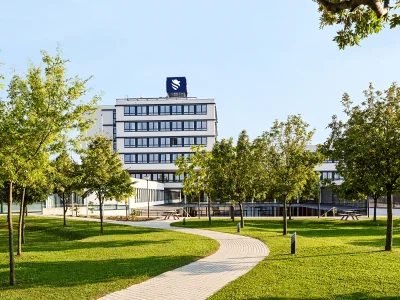
Roman Hörbe
Position
Location
Campus 1 Wiener NeustadtJohannes Gutenberg-Straße 3
2700 Wiener Neustadt

Research Activities
DigiLean
In this project, workshops with companies in the food industry will discuss methods of digitization of production processes and associated processes in quality assurance and maintenance, and possibilities for their practical application will be shown. A special focus is on artificial intelligence methods and their potential for process improvement. In workshops, the companies can exchange ideas with each other and with experts, as well as visit projects that have already been implemented in the companies.
ProcessIQ
The aim of this project is to search, evaluate and test various technologies for the automated (AI-supported) detection of quality defects and anomalies in the process data in two product lines of a manufacturer of special machines.
IntelliProPS
The aim of this project is (1) the research and development of new planning and control concepts based on the combination of classic methods of planning and control with methods of artificial intelligence (especially machine learning) for production scenarios with very high volatility and variability with regard to product variants, order quantities, raw material/part quality, with a simultaneous high degree of automation and a high degree of human-machine collaboration, (2) the development of a configurable simulator and demonstrator that allows production companies to use various decentralized planning and control concepts enriched with AI for production scenarios with high variability and To test, evaluate and further develop volatility in terms of product variants, order quantities, raw material/part quality (development and test bench for AI-enhanced production planning and control concepts). This project is funded by the FFG as part of the COIN construction FH for the economy program.
CircularPro
In the "CircularPro" project, a continuing education program for SMEs is being developed that is intended to enable product developers, product designers and development engineers to design products that are recyclable. Modules are developed with a focus on the basics and framework conditions of the circular economy, recyclable materials, circular design and construction principles and circular-based product-service systems. With these modules, participants should build up competencies in order to effectively develop sustainable and recyclable products and product-service systems in the future. In order to establish the practical relevance, case studies and practical exercises are developed for all modules, which supplement the theoretical content. The FHWN Innovation Lab provides a laboratory environment that can be used for prototyping and illustrating recyclable products. This project is funded by the FFG as part of the Innovation Camps program.
